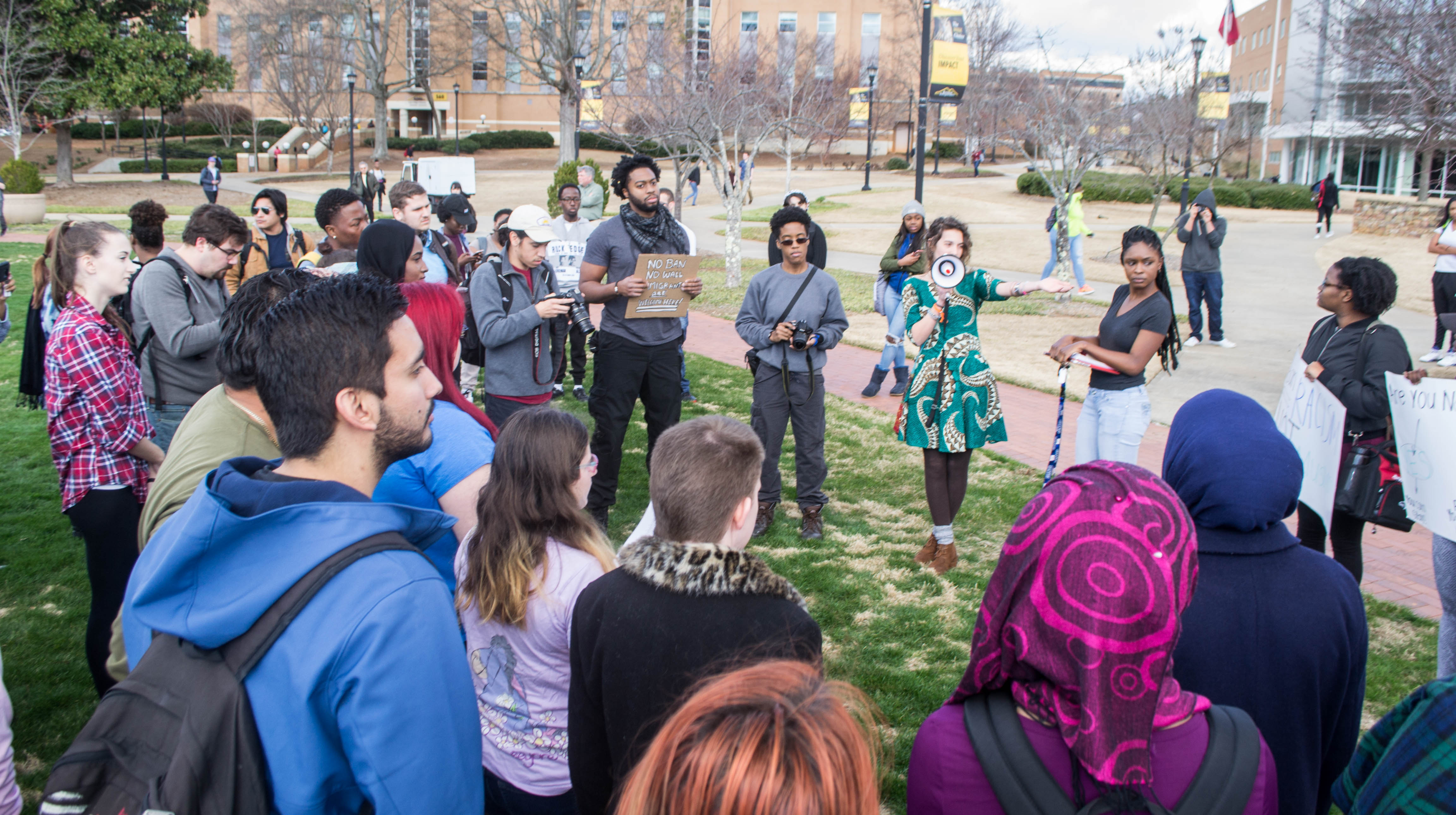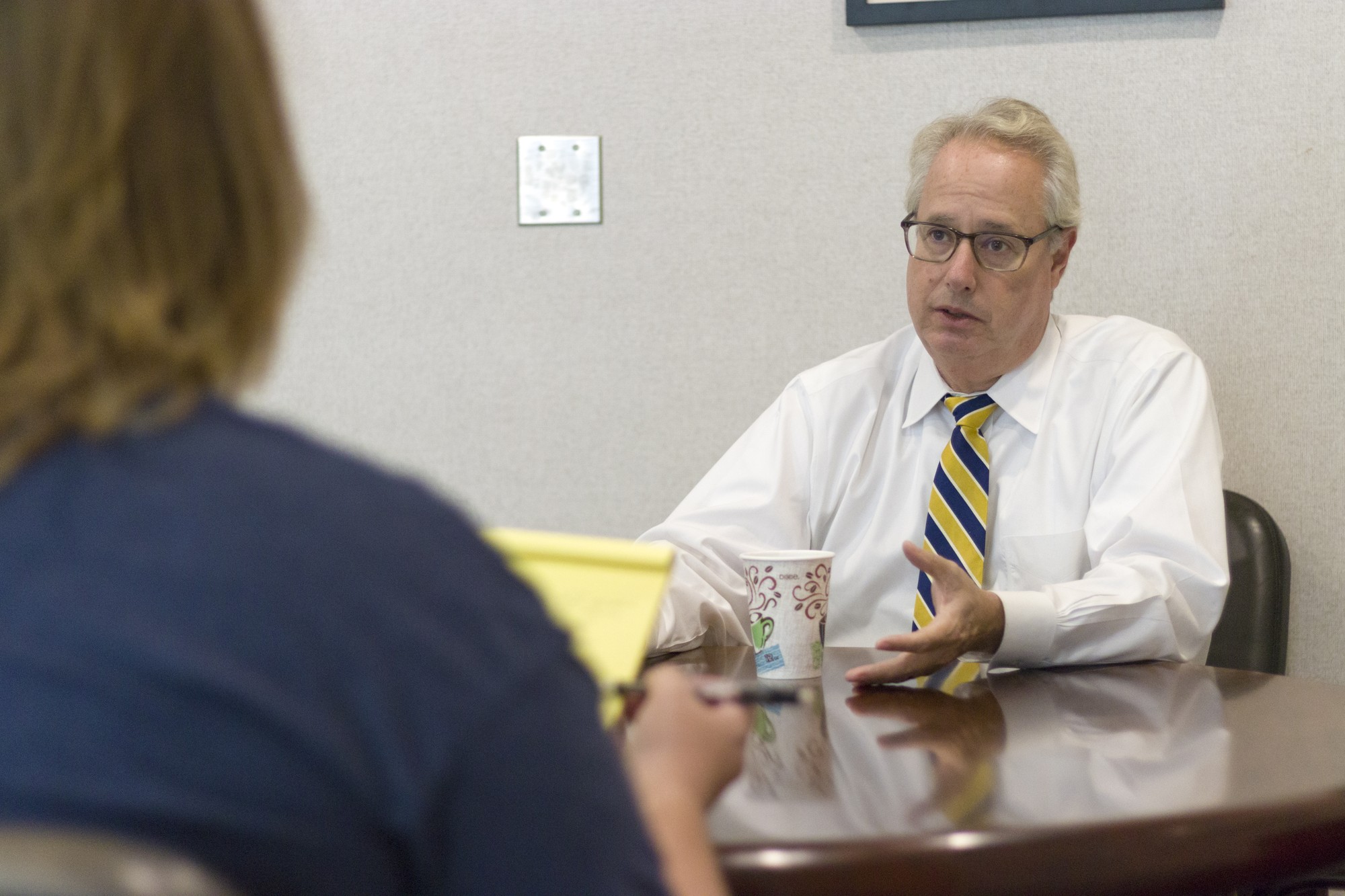Students protested across campus Feb. 1 in solidarity with the immigrants and refugees affected by President Donald Trump’s executive order that would limit the entry of foreign nationals from seven Muslim-majority countries into the United States.
“Our main goal is to show our sisters and brothers support and to give them a safe space to share their thoughts and opinions,” said Priscilla Almonacy, a junior African diaspora and sociology double-major and one of the organizers of the demonstration. “We want to use our privilege to amplify their voices and provide them with a sense of camaraderie. We also want to put faces to these news headlines and humanize those on the other side of the ban.”
The executive order was signed by the president on Jan. 27, but it was suspended Feb. 3 by Judge James Robart of the Federal District Court and is currently being held up in federal court.
If allowed to resume, it would restrict nationals from Iran, Iraq, Libya, Syria, Somalia, Sudan and Yemen from entering the country for 90 days. It would also suspend the U.S. Refugee Admissions Program for 120 days and states that, when the refugee program resumes, it would give priority to those claiming “religious-based persecution,” as long as it is a minority religion in their country.
The march began outside The Commons and ended on The Green, where demonstrators shared their personal feelings about the travel order and chanted, “Love, not hate, makes America great!” The group comprised individuals with ties to immigrants as well as those without any direct connection to the executive order.
Aleaka Cooper, a sophomore exercise science major, said she feels the sting of the order personally because her father is an immigrant seeking citizenship.
“If they ever come for him, I don’t know what will happen,” Cooper said. “But what I do know is that my faith will not waver, my faith will not shake because I’m still an American at the end of the day and they will not divide us.”
Ziad Moukadem, a freshman mechanical engineering major originally from Lebanon, cited his home country’s practice of admitting Syrian refugees by the millions, a policy he felt the United States should emulate.
“People keep dying in thousands every day,” Moukadem said. “Last time I checked it was ‘the United States of America’, not ‘the Divided States.’ Last time I checked, it was ‘We the People’, not ‘We the Christians, We the Muslims, We the Whites or We the Blacks.'”

Yen Rodriguez is the assistant director of Race, Culture and Ethnicity Programs for the Department of Student Engagement and an immigrant himself. He offered students a place to express themselves at the university’s Department of Multicultural Student Affairs.
“When times like these occur, we go into hiding,” Rodriguez said. “It’s not a time when we feel free to express our frustrations. We will have that private space for you in Multicultural Student Affairs. Please come share with us your thoughts, your fears, your ideas — whatever agendas you have to move forward. We will have that space for you.”
The outrage was felt among faculty members as well as students and staff. Robbie Lieberman, chair of the Interdisciplinary Studies Department, reported that faculty members, in response to the ban, have been circulating an “anti-authoritarian code of conduct for academics,” an ethical manifesto listing behaviors that inclusive faculty should refuse to engage.
“All of us are affected by this,” Lieberman said. “Look at the list of artists, scientists and students who now can’t come to the United States to enrich our community.”
The organizers of the march encouraged those who oppose the proposed ban to continue to share such information and resources on the event’s Facebook page, Muslim and Refugee Solidarity Demonstration.




